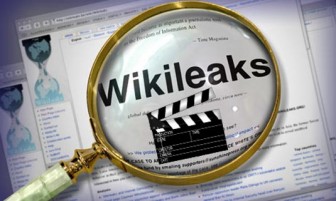Barbados Foreign Minister Billie Miller gave island-based ambassadors a detailed briefing in 2006 in which she declared that the service industry would be Bridgetown’s future away from areas like sugar and she cited Guyana as one of a number of sweetener producers who were being undercut by Brazil.
The wide-ranging briefing was disclosed in one of the US cables uploaded by the WikiLeaks website founded by the controversial Julian Assange. The classified cable, dated 2006-04-12 was composed by then US Ambassador to Barbados Mary Kramer.
Kramer in a comment on the briefing described it as unusual. “Such a frank and wide-ranging discussion between the Barbados Government and senior diplomats is extremely rare. The Barbadians normally hold embassies at arm’s length, insisting on a rigorous adherence to protocol that stifles open discussion”, she said. She added that Miller and Barbados are Caricom leaders in many foreign affairs areas and their views were likely to hold true for the rest of Caricom.

Miller’s comment would have come at the time that ground-breaking reforms were occurring in the preferential market in Europe that Barbados and Guyana among others enjoyed. At the end of it, the price paid for Guyana’s sugar fell by 36%. Some regional countries: Barbados and St Kitts in particular decided at that point to abandon sugar and focus elsewhere. Guyana stuck with sugar having already invested heavily in the Skeldon modernization project and the now troubled Chinese-built mill. Miller’s comment about Brazil may also refer to the challenge that Brazil, Thailand and Australia had lodged against continued sugar preferences in the EU for the ACP group.

Though there was limited economic impact from the sugar fallout on Barbados, Miller pointed out that countries such as Dominica had been hard hit by the loss of banana preferences.
During the discussion and in answer to a question from the Venezuelan Ambassador, Miller disclosed that Caricom was divided over who should be supported for permanent membership on the United Nations Security Council. She disclosed that some in Caricom only favoured Brazil and India while others were in favour of the so-called G-4 proposal which also encompassed Germany and Japan.
China
Miller also spoke to the ambassadors about the aspiration for a renewal of the US Caribbean Basin Initiative which at that point required a waiver from the World Trade Organisation. Such a waiver was being opposed by China, Pakistan and India among others.
Miller argued that the developed countries had had 60 years to prepare themselves for free trade and to design rules and Caricom countries were simply fighting to save their trade space.
Kramer revealed in the cable that Miller had told her privately that “the Chinese `owe’ Barbados for all the favourable deals their state construction company has won – and will continue to win – in Barbados”.
Among the ambassadors present at the briefing were those from Cuba, Costa Rica, Venezuela, the US, Brazil, China and the UK.





